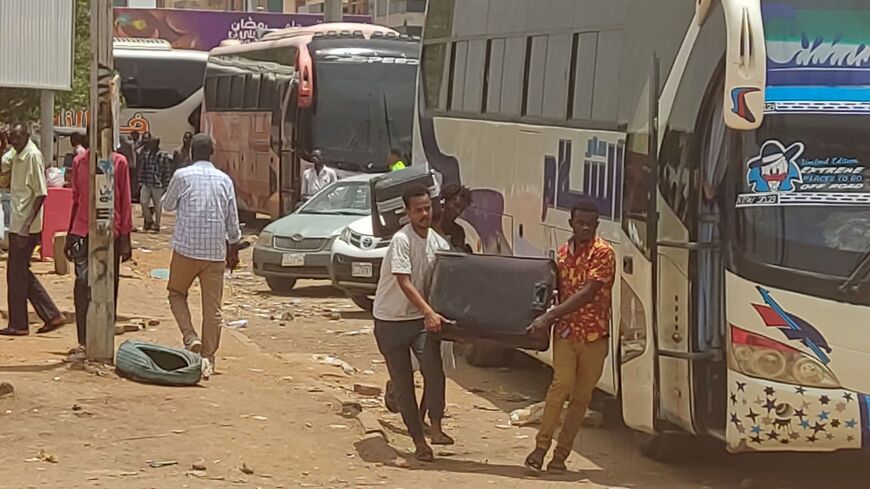WASHINGTON — After nearly three weeks of fierce fighting in Sudan, President Joe Biden signed an executive order Thursday that authorizes targeted sanctions on those responsible for the violence that’s killed more than 500 people and threatened to tank the country’s democratic transition.
The order stops short of specifically naming any parties to the fighting but paves the way for sanctions on “individuals responsible for threatening Sudan’s stability, undermining its democratic transition, using violence against civilians and committing serious human rights abuses,” Biden said in a statement.
It’s yet another warning sign from Washington after years of what some former officials say were missed opportunities by US administrations to put serious pressure on Sudan’s generals.
The sanctions threat comes as Biden administration officials have been working the phones to get Gen. Abdel-Fattah Burhan’s Sudanese Armed Forces and the paramilitary Rapid Support Forces (RSF) led by Gen. Mohamed Hamdan “Hemedti” Dagalo to agree to a permanent cease-fire.
The two generals seized power in a 2019 coup and then ousted Sudan’s civilian-led transitional government in October 2021, only to turn against each other last month. The current fighting comes amid failed talks between the two over steps toward integrating Hemedti’s RSF into the wider Sudanese Armed Forces led by Burhan.
Lawmakers on both sides of the aisle, including Sens. Bob Menendez (D-N.J.) and Jim Risch (R-Idaho), have called on the Biden administration to respond to Sudan’s conflict with sanctions on its military leaders. Former US officials with experience in Africa policy have criticized the administration for not doing so sooner.
Biden administration officials have been reluctant to enact punitive sanctions on Sudan’s generals, fearing loss of leverage in Washington’s attempts to facilitate the country’s fragile democratic transition following the 2019 and 2021 coups.
Rights groups have compiled what they say is vast evidence of human rights abuses committed by forces loyal to Burhan and Hemedti, the latter of whom was a commander in Sudan’s notorious Janjaweed militia that committed atrocities in Darfur in the early 2000s.
Since the fighting that erupted April 15, at least 528 people have died and nearly 4,600 have been injured, the United Nations said Wednesday. More than 100,000 have fled to neighboring countries, according to the UN’s aid coordination office.
UN Secretary-General Antonio Guterres said Wednesday that Sudan is at risk of a “humanitarian catastrophe,” with millions of people now facing food insecurity.
Fighting has continued in the capital and elsewhere in Sudan despite the multiple attempts to establish cease-fires, the latest of which took effect Thursday and is set to expire May 11. Last week, a US official acknowledged the repeated cease-fires were “not perfectly working” but had created “meaningful periods of reduction of violence” that have allowed civilians to escape the capital, Khartoum.








